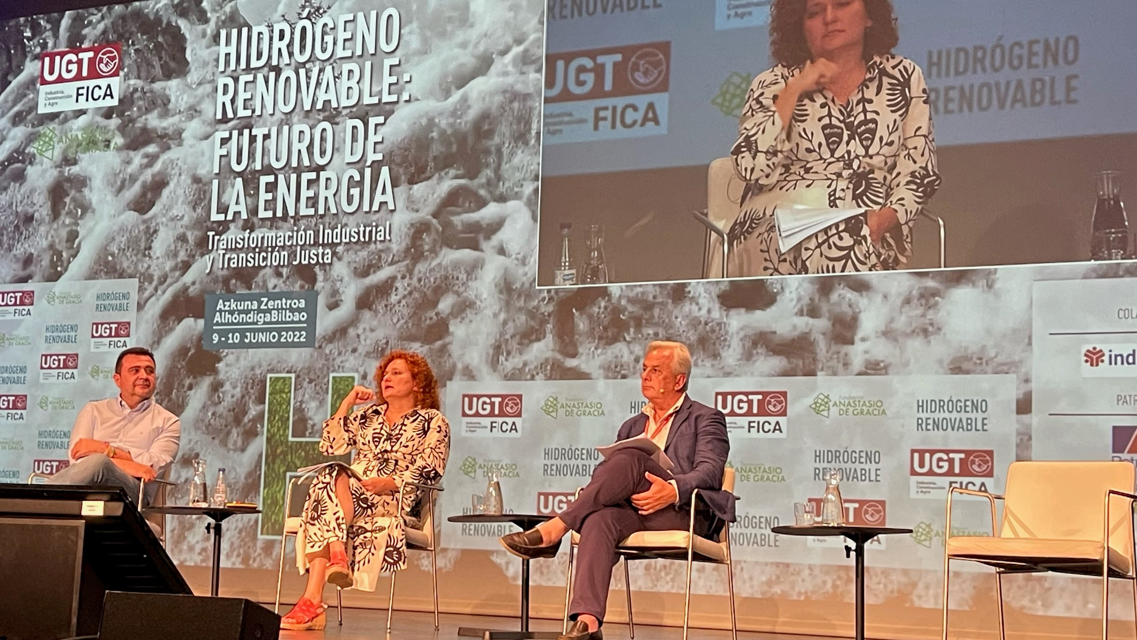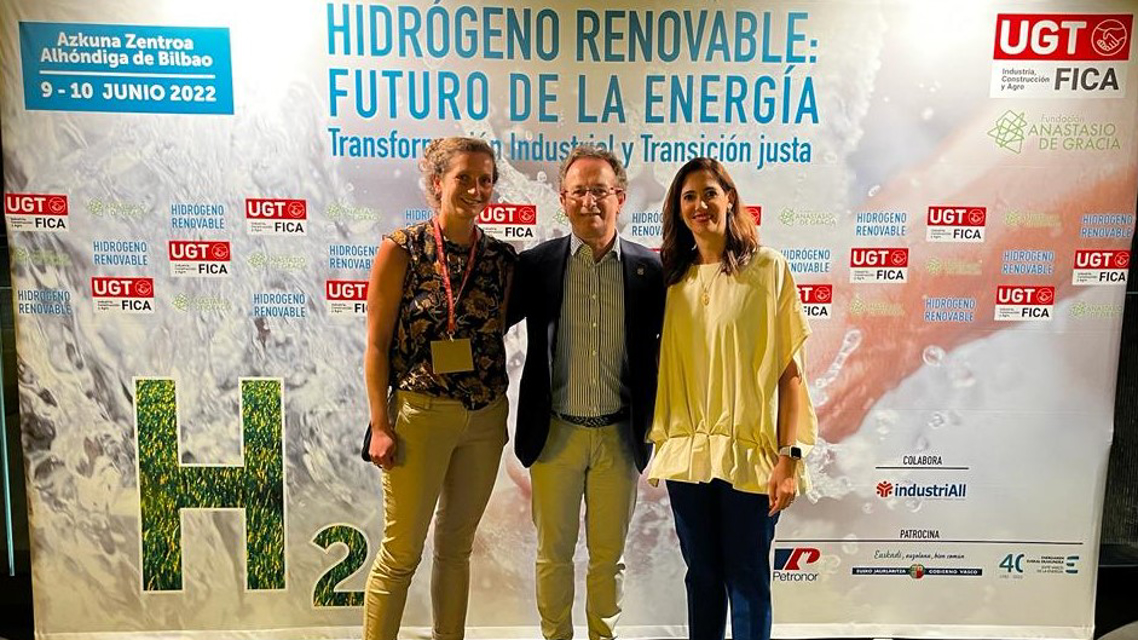Trade unions from across the globe joined UGT FICA’s conference in Bilbao, Spain on 9 and 10 June to discuss the crucial role of hydrogen in enabling the industrial transition and ensuring that it is just for industrial workers. They were joined by representatives of the Spanish and Basque regional governments, companies and trade union representatives from Canada, France, Germany, Japan and the US. The event focused on sharing experiences in rolling out hydrogen projects and how trade unions are engaging in them.
In 2020, Spain launched an ambitious hydrogen strategy with the aim of producing at least 4 GW of renewable hydrogen by 2030. Today, the country is in a good position to reach at least a 10% share of the REPowerEU target by 2030, stated Teresa Ribiera, Minister of the Ecological Transition in Spain, during her conference address. As the Spanish hydrogen strategy is linked to a strong social dialogue with trade unions, it has the potential to contribute to a just energy transition.
Our Spanish affiliate UGT FICA organised the high-level event at a time when the European Union is scaling up its renewable energy and hydrogen ambitions with the RePowerEU programme. It demonstrated our colleagues’ strong commitment to shaping an energy transition that creates high-quality jobs and high-quality working conditions. The Basque Hydrogen Corridor, which was at the centre of the debate, is of enormous importance for energy and industrial workers alike. With a planned investment of EUR 1.3bn, the Corridor is expected to create 1340 direct and 6300 indirect jobs by expanding renewable hydrogen production, infrastructure and different end-use applications. This is backed by a social pact for a Just Transition that was concluded with the Spanish trade unions in 2021.
IndustriAll Europe participated in the conference and presented its Just Transition Manifesto to the Director of the Just Transition Institute, Laura Martin. The Spanish trade unions had played a crucial role in developing our Manifesto. The two Just Transition agreements for workers in the Spanish coal extraction and coal power sectors provided useful evidence and an excellent example of managing a Just Transition.
At a time when Just Transition is on everyone’s lips, but when concrete, hard legislation is still lacking to support it, we need such good examples of trade unions making their voices heard and proactively discussing the future of industrial workers and high-quality working conditions.
For industriAll Europe, the development of the European clean hydrogen value chain will be a corner stone of decarbonising energy-intensive industries and transport and keeping strategic value chains and quality jobs in Europe. As a member of the European Clean Hydrogen Alliance, we will continue to promote our Just Transition demands:
- An industrial policy fit for ambitious climate goals
- A funding framework that is tied to strong social ambitions and social dialogue with trade unions
- Strengthening collective bargaining for high-quality jobs
- A toolbox of workers’ rights and companies’ duties to anticipate the change
- Tackling skills needs and establishing a right to training
Nothing about us, without us!
Contact: Andrea Husen-Bradley (press and communication), Corinna Zierold (senior policy adviser)

